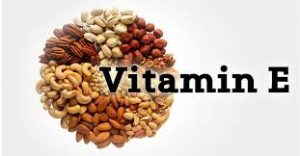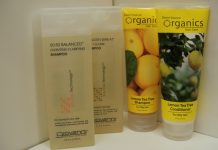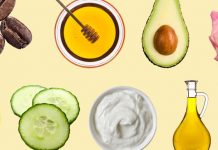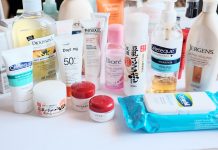We all know and we are all told that we must eat a balanced diet for a healthy skin. Unfortunately, it is often not possible in a fast paced life. This results in nutritional deficiencies. When our diet is lacking in vital nutrients, it will show up in our skin in form of skin problems like dullness, lifelessness, wrinkles, and acne. If you do not have time to eat a balanced diet, supplement it with top vitamins for skin care.
Top Vitamins For Skin Care
Vitamin A
Vitamin A is a category of compounds that has its active forms and other provitamin A carotenoids. Beta carotene is the form of vitamin A that you get directly from plant based foods you eat. The active forms of Vitamin A can be found in animal foods. One in your body, beta carotene is converted to the retinol form of vitamin A. Vitamin A protects against sun damage and slow down signs of aging. Vitamin A fights free radicals that break down collagen and give rise to fine lines and wrinkly skin. Vitamin A also fights sun damage. Vitamin A also promotes healthy skin cell production. It also stimulates fibroblasts, the cells which are responsible for producing tissue that keep skin firm. They are in deep layers of your skin. Not getting enough Vitamin A can lead to lifeless skin, which will make it vulnerable to wounds, and also slow down healing. Vitamin A also protects against infection. Your skin protects you from pollutants and infection. By increasing cell production, vitamin A strengthens this barrier and protects your complexion. Women should ideally get 700 mcg of vitamin A daily, and men should aim for 900 mcg. Topical application of Vitamin A smoothes wrinkles. Vitamin A, when applied topically, stimulates collagen production. Vitamin A turns on cells responsible for producing new collagen, which strengthens your skin and fills in fine lines so skin looks smoother. Vitamin A evens skin tone and gives it a glow. Vitamin A creams can lighten sun spots as well. They increase and normalize skin cell turnover, which helps you shed damaged cells, and promote production of healthier cells. Vitamin A may block an enzyme that is needed for melanin production, which further helps in delivering an even toned, glowing complexion. Vitamin A creams increases cell turnover, so pores are not clogged by dead cells. This reduces oil production and keeps acne at bay.
Food Sources

Eggs,dairy ,orange and green leafy vegetables such as carrots, sweet potatoes, cantaloupe and spinach are all nice sources of Vitamin A. Consult your doctor for recommendation on capsules/tablets.
Vitamin B
Vitamin B can help to prevent ageing. Particularly, Nicotinamide, which is a derivative of Vitamin B3 , has been reported to increase the ability of the epidermis, the upper most layer of the skin, to retain moisture which leads to smoother, softer skin with less flakiness and dryness, and a reduction of wrinkles and fine lines. Nicotinamide can also be used an effective skin lightening ingredient. B complex vitamin counteract damage caused by free radicals. Vitamin B12 regulates skin’s pigment production and location, which prevents hyperpigmentation. Vitamin B3 is helpful in improving the appearance of some skin conditions. Vitamin B5 helps to minimise acne by helping the body breakdown oils. Vitamin B5 also promotes faster healing of skin wounds too.
Food Sources
Animal products like poultry, fish, meat, eggs, or dairy. It is also present in fortified breakfast cereals and enriched rice or soy milk. The sources of vitamin B6 are beef, fish, liver and other organ meats, sweet potatoes and other starchy vegetables, and fruits (other than citrus). 
Vitamin C
The antioxidant properties of vitamin C and the role it plays in collagen production makes vitamin C a vital vitamin for skin health.Vitamin C may even help prevent and treat sun induced photodamage. Vitamin C has many effects in fighting photodamage. It has been reported to stabilize collagen production. Collagen is necessary for even skin tone. Vitamin C also helps in wound healing. High intake of vitamin C have is related to a decreased risk of dry skin. Vitamin C can also be used in the form of a serum to apply topically on skin. It helps to fade acne marks, dark spots, and reduce hyperpimentation. It is also a good choice if conventional moisturizers break you out. Vitamin C serums moisturize your skin without clogging pore. Vitamin C serums must be kept in a dark, cool place, and the lid must be closed tightly. This is because Vitamin C serums degrade very fast. They are usually expensive as well.
Food Sources
Bell peppers, berries, broccoli, dark leafy greens, kiwifruit, citrus fruits, peas, tomatoes, and papayas are high in Vitamin C. The current daily value for vitamin C is 60mg.

Vitamin D
Vitamin D2 and Vitamin D3 are vital for skin health. Vitamin D supplements or creams can be effective in the treatment of psoriasis. Psoriasis symptoms are itchy and flaky skin. Vitamin D also repairs skin. Vitamin D3 contains anti inflammatory properties which helps in treating skin injuries, burns, skin damage and stretch marks. Vitamin D also prevents premature ageing and skin damage. Vitamin D also helps in treating eczema and also helps rosacea sufferers. The main source of Vitamin D is sunlight. Lack of Vitamin D can cause acne break out. Vitamin D3 significantly reduces oil production in skin, which keeps acne away.

Food Sources
Salmon, tuna, soy milk, orange juice, low fat milk, cereals, eggs, and Swiss cheese.
Vitamin E
Vitamin E is like an antioxidant. Its protects skin from sun damage. It absorbs the harmful UV rays from the sun when applied topically. This helps prevent dark spots and wrinkles. If you have a very dry skin, vitamin E may help. Vitamin E is also good for the treatment of skin inflammation. Topical application of vitamin e serums help to minimize the appearance of scars and wounds. If you do not have a vitamin E serum, using olive oil or almond oil is also a good idea.
Food Sources
Almonds, raw seeds, Swiss chard, mustard greens, spinach, turnip greens, kale, and plant oils.

Also Read: Super Foods – Healthy Way To Stay Young
Vitamin K
Vitamin K is required for maintaining skin elasticity in patients suffering from pseudoxanthoma elasticum. PXE is a hereditary condition that causes skin wrinkling. Human skin needs elasticity. Vitamin K is helpful for that. People who are deficient in Vitamin K are prone to wrinkles. Vitamin K improves blood circulation so it is used by cosmetic companies to make creams, lotions, serums and many other cosmetics. It is a vital ingredient in face masks. Vitmin K can help minimize eye wrinkles, enhance skin color and structure, normalize of water fatty balance of skin and help blotchy skin. Vitamin K can also reduce dark eye circles and bags. It penetrates deep through the skin pores and reaches the damaged artery. It supports the blood clotting process and blocks seepage, which helps skin tissue heal itself.
Food Sources
Green leafy vegetables like spinach, kale, turnip greens, beet greens, mustard greens, collards, parsley, Swiss chard, romaine, and green leaf lettuce. Vegetables like brussels sprouts, cauliflower, broccoli, and cabbage. Liver, fish, meat, eggs, and cereals.

It is best to get all your vitamins from natural sources. If, for some reason, your diet is inadequate and does not supply your body with all the vitamins you need, consult your doctor. Tests can determine if your body is lacking any vitamin. Never take a vitamin supplement without consulting your doctor. Your face reflects the health of your body. If you have skin issues, it means your body is lacking nutrition needed to maintain a healthy skin. Juices, soups, and smoothies are a good way to have lots of vitamins in your body without having to eat a lot. Look up recipes that will be sufficient in all the vital nutrients. It is essential to have vitamins for skin in your diet for a healthy skin.
Also Read: Power of Antioxidants – Advantages of Antioxidants
Do you take any vitamins for skin? Have they helped your skin? Let us know in the comments below!































